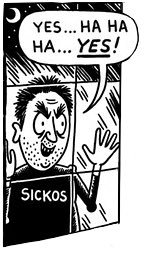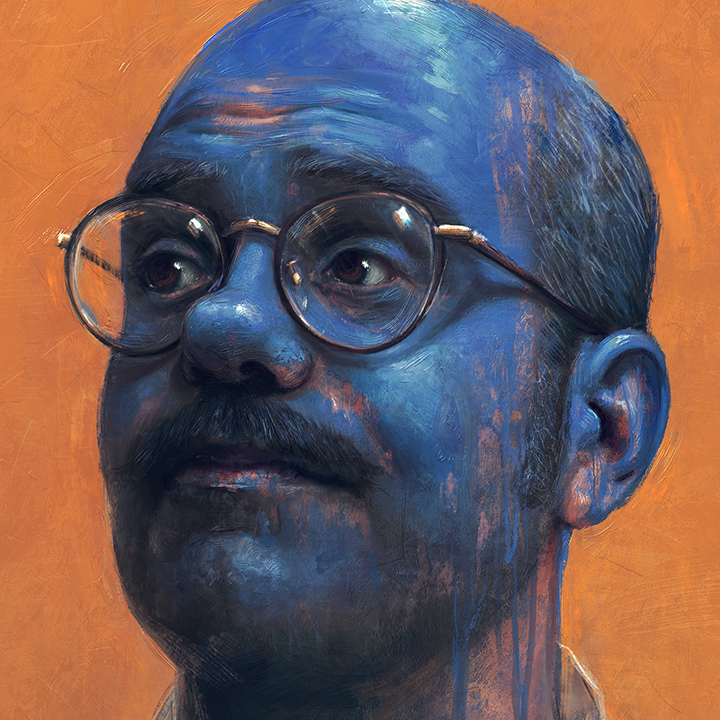Proper unfiltered American history should be the first thing. Imo
You should be at least familiar with Marxism before you read Settlers, not a first time reader's text, unless you want to make some race existentialist, Dengists.
Pretty much, he argues for "race as a form of class" which I honestly don't find convincing, it really seems like a confounding of a race and a nation that ends up essentialising race.
I think his argument is that in the US, slavery was based on race. So white people where peasants, proletarians, and small proprietors, and black people were slaves, meaning these two groups of people are forced onto either side of a class divide. After slavery is abolished, black people remain among the most exploited workers and peasants, plus they are discriminated on based on their race, solidifying the fact that black people and white people form a distinct and seperate group on the US with a different history and different shared life.
All this is totally right, but where I think Sakai diverges with Marxism is instead of seeing this instance where racism was used to justify a class difference, and then is used to justify the continued special oppression of racial minorities, as something that creates distinct nations (i.e. peoples), he says that race in the US will always have a 1:1 relationship with class, and the oppressed races are proles and white people are not. This completely leaps over the issue of national liberation into an anti-Marxist definition of class which essentialises race, which he justifies with plenty of examples of white chauvenism to prime the reader to make the same logical leap he is making.
edit: just noticed you asked where, not how, he argued for that lol. I got most of this from an interview Sakai had for his book When Race Burns Class, where he gives the argument he presents in Settlers in brief
Who cares, as long as the fucking neolibs are put into gulags: and their idols are dead, I'm ok with whatever chuds become. Unlike neolibs and billionaires, these guys are "innocent" so to speak, because they were either too influenced by propaganda or religion.
I think that as well as hands on trades skills, kids should be taught about how their local government operates and how they can make an impact on the world. That way people not only learn the skills to help their community they also learn how to participate in politics to utilize those skills.
I'd write a book called 2084 about a future society where everyone works three jobs as grubhub drivers, amazon warehouse workers, and body haulers for victims of covid 84. The protagonist is an incel drone operator who constantly wonders if the dot he is bombing is his soul mate.
Am I the only one whose brain immediately started playing "Whole Wide World"?
Unironically bring back home ec with a community emphasis, yeah as reeducation but also starting from kindergarten. Everyone should know some basic carpentry, cooking, cleaning, sewing, gardening, etc especially as a means to connect with your community
This is the normalista approach in Guerrero, Mexico — it’s an extension of Zapatista theory.
The crimes of capitalism, the absolute devastation of third world countries and the environment, the coups, the war crimes, the CIA drugs. All of them. You need to show them the true extent of the nightmare we live in, and they have been oblivious to.
And then, some basis on history, science, and philosophy. Seriously, like how the fuck is the academia in the US this clueless about politics ? Not even the average joe, the fucking ACADEMIA itself. There are unironic horseshoe theorists passing this trash as knownledge worth indebting yourself for.
Yeah, seconding this. I was just gonna say "US imperialism".
Fuck theory, teach people how to grow their own food and depend less on centralized systems. I love our peepeepoopoo special lefty books and tankie/anarkiddie club badge labels, but until everybody has enough to eat, the abstract stuff can wait.
This is your re-education comrade. This is all a simulation to teach you about the horrors of capitalism
First and foremost people should learn the how and why their society functions.
-
Everyone needs a foundation in real history, not the white-washed, under-budget shit they get now. History from a Marxist perspective.
-
Everyone needs basic economics. Teach them why socialism works and how it works. Debunk capitalist myths and indoctrination
-
A class or classes on socialist civics. A course on how to be a citizen of our new socialist society. How to get stuff you need, how the government works, what you can do to help.
-
A cultural class about social issues like racism, sexism, transphobia, etc. After the first three, this should go down much easier since it will be obvious how these things tie into history and capitalism. And after the civics class of learning to be a good citizen/comrade/neighbor, it should click with more people. I don't think you can fully re-educate all prejudices, but with economic stability and a good education on these matters it should knock it down quite a bit. After a generation or two it should be way less common.
The real question is what do you do with the people who refuse and fight you the whole time? You put them in class with everyone else, they raise a fuss and disrupt classes. You could isolate them and put all the trouble makers in one class together. But then they can gang up on teachers. You could spread them out so there's only one per class, and then use social pressure to silence them or change their mind. I feel like gulag is a little on-the-nose. Work camps is just slavery. I don't know what to do about that.
If this extends to education as a whole, and not just re-education, I have some ideas there too.
The liberal arts idea was to create well-rounded individuals. It also would let people experience things outside of their immediate surroundings and expand their horizons. It's an admirable goal despite how its handled in public schooling and college these days. The internet kinda lets people do that already. The above three tenets cover the boiler-plate philosophy/history/economics/civics everyone needs. So I think we can back off the liberal arts stuff for most people.
The real goal should be having an open curriculum where people choose what they want to learn about, and are free to come and go as they please. If you're 50 years old and want to learn something new, you can. You shouldn't have to enter a full on degree program with dozens of other classes just to learn one thing. The citizenry should be able to engage with it on their terms (outside of the core classes above). The internet should also be useful in this regard. Our country should send some ambassadors on cultural expeditions and record 3D video and/or 3D scans of cultural sites (where allowed). We should make all art and cultural sites within our own country available in VR and 3D video online. Basically let people experience things online when they can't do it first-hand. Hell, publicly fund free video games that let you engage with this stuff. That way people can still be exposed to new things and be well-rounded.
There will still be jobs I assume. Since production is owned by the people, you can create efficiency by using the schools as job-training centers too. This is where you get your specializations and deeper learning about subjects. Most people, for example, will only learn enough math to function. But someone trying to be a scientist will need higher maths. But this isn't limited to jobs like that. Trades will be taught here too. Even service job training and such.
For kids, there should be some standard set of classes, like the core above, but teaching them how to function as a human. Teach them some math. Teach them nutrition. Teach them language(s). Teach them some minor creativity. Teach them to make food. Sort of a liberal-arts lite mixed with life skills.
-
Pretty much all the discontent you see under capitalism is a result of contradictions within the system. Even the discontent of the bourgeoisie is discontent with the system not catering to their interests as much as they would like (otherwise there would be revolution).
Communism is the movement to resolve those contradictions. Discontent with the system under communism is a sign that we are doing something wrong and should endeavour to fix it. For the generations that have lived life under capitalism, there will be a desire, especially from those who are privileged, to return to the system. This is my view is a result of a lack of education and self-reflection. If these people can be educated out of their hyper-individualism and learn about how the previous system was harmful to many people, it would curb a lot of dissent.
Also, at least some of the dissent will be legitimate grievances caused by bad policies or practices. These people deserve to be listened to, should we wish to avoid the degeneration of the system into some form of class-based bureaucratic authoritarianism, where only some people have political rights and others do not.
the truth of timecube. for gym class you can do weightlifting, dodgeball, or lap running. if we get a swimming pool maybe swimming idk whatever they are down for
Based as fuck question.
I suppose the first concept would be understanding class struggle, how capitalism exploits workers, a very brief run down of dialectical materialism, and just general class-consciousness building exercises.
Next would be the "de-colonization," so to speak, of American history, ie slavery, racism, patriarchy, etc., and explaining how most civil rights leaders were communist.
Finally, we'd "de-propagandize" foreign history, and explain that Lenin, Mao, Stalin and others like them were actually good, and raised their countries living standards immensely and lead to the way to communism.







